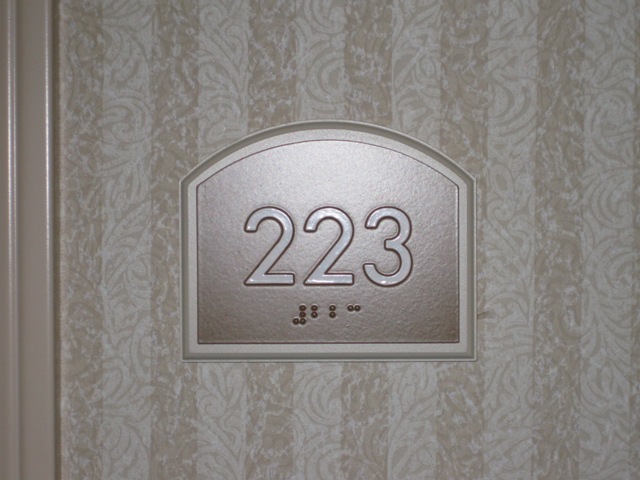On August 23, 1939, the Molotov-Ribbentrop Pact, as the Treaty of Non-Aggression between Germany and the Soviet Union was unofficially known, was approved by Stalin and Hitler. Less than two years later, Hitler unleashed Operation Barbarossa upon Stalin’s Soviet Union. Russian losses in the first few months, including killed, wounded, or taken prisoner, ran into the millions. This is what happens when you make a pact with the devil.
The NRA has made such a pact with the House Democrats on HR 5175, the DISCLOSE Act, in which in return for a carve-out exempting them from it provisions they will not oppose it. Congressman Heath Shuler (D-NC 11) has submitted an amendment to the DISCLOSE Act that will reportedly exempt 501(c)4 nonprofit political organizations that have “more than one million members, have been in existence for more than 10 years, have members in all 50 states and raise 15 percent or less of their funds from corporations”. The DISCLOSE Act is the Democrat’s reaction to the Supreme Court decision in the Citizens United case.
According to the Center for Competitive Politics, the DISCLOSE Act proposes legislation that:
would ban many companies from airing political ads, give candidates a windfall subsidy in ad time to respond to independent ads, regulate long-protected issue advocacy with more restrictive coordination rules and force nonprofits and trade groups to disclose their donors-even if donors don’t intend their funds to be used for influencing elections.
The NRA has obviously started to feel heat from conservative groups as well as their members. The NRA Institute for Legislative Action released this statement by email yesterday evening:
Statement From The National Rifle
Association On H.R. 5175, The Disclose Act
The National Rifle Association believes that any restrictions on the political speech of Americans are unconstitutional.
In the past, through the courts and in Congress, the NRA has opposed any effort to restrict the rights of its four million members to speak and have their voices heard on behalf of gun owners nationwide.
The NRA’s opposition to restrictions on political speech includes its May 26, 2010 letter to Members of Congress expressing strong concerns about H.R. 5175, the DISCLOSE Act. As it stood at the time of that letter, the measure would have undermined or obliterated virtually all of the NRA’s right to free political speech and, therefore, jeopardized the Second Amendment rights of every law-abiding American.
The most potent defense of the Second Amendment requires the most adamant exercise of the First Amendment. The NRA stands absolutely obligated to its members to ensure maximum access to the First Amendment, in order to protect and preserve the freedom of the Second Amendment.
The NRA must preserve its ability to speak. It cannot risk a strategy that would deny its rights, for the Second Amendment cannot be defended without them.
Thus, the NRA’s first obligation must be to its members and to its most ardent defense of firearms freedom for America’s lawful gun owners.
On June 14, 2010, Democratic leadership in the U.S. House of Representatives pledged that H.R. 5175 would be amended to exempt groups like the NRA, that meet certain criteria, from its onerous restrictions on political speech. As a result, and as long as that remains the case, the NRA will not be involved in final consideration of the House bill.
The NRA cannot defend the Second Amendment from the attacks we face in the local, state, federal, international and judicial arenas without the ability to speak. We will not allow ourselves to be silenced while the national news media, politicians and others are allowed to attack us freely.
The NRA will continue to fight for its right to speak out in defense of the Second Amendment. Any efforts to silence the political speech of NRA members will, as has been the case in the past, be met with strong opposition.
The NRA thinks of its own needs first and I understand that. They didn’t get to be the 800-pound gorilla of gun rights by being selfless. However, and I say this as a Life Member of the NRA, they are thinking in “Inside the Beltway” terms which may be tactically sound but strategically unwise. Local and regional gun rights groups who are much more agile in responding to state and local threats to gun rights will be hung out to dry.
Instead of playing with the Democrats, the NRA should heed the advice of Niccolo Machiavelli.
A prince, therefore, being compelled knowingly to adopt the beast, ought to choose the fox and the lion; because the lion cannot defend himself against snares and the fox cannot defend himself against wolves. Therefore, it is necessary to be a fox to discover the snares and a lion to terrify the wolves.
The Prince, Chapter XVIII
Those proposing the DISCLOSE Act are nothing but wolves and the NRA should make the vote on HR 5175 a graded vote. They need to be the Lion and quit trying to play the Fox.
UPDATE: Pelosi has pulled the DISCLOSE Act.
UPDATE #2: Put up for a vote on June 24th and it passes.

